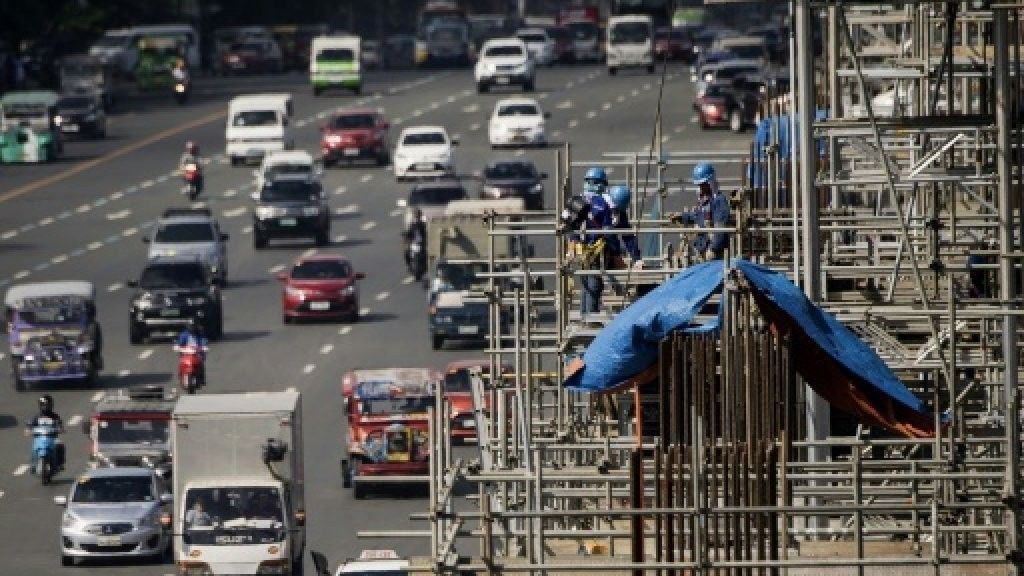Budget delay drags down Q1 GDP growth to 5.6%

Weakest quarterly pace since Q1 2015
MANILA, Philippines — The domestic economy grew at a slower-than-expected pace in the first quarter of 2019 as the delay in the passage of the national budget stalled government spending during the period, the Philippine Statistics Authority (PSA) said yesterday.
Economic growth, as measured by the gross domestic product (GDP), went down to 5.6 percent, the weakest in 16 quarters or since hitting 5.1 percent in the first quarter of 2015.
This compares with the 6.5 percent growth in the first quarter of 2018 and the revised 6.3 percent growth in the fourth quarter of 2018.
Socioeconomic Planning Secretary Ernesto Pernia said growth could have logged at 6.6 percent in the first quarter of 2019 had the government operated under the 2019 fiscal program.
“As we have forewarned repeatedly, the reenacted budget would sharply slow the pace of our economic growth,” he said in a briefing yesterday.
Data from the PSA showed that growth in government consumption weakened significantly to 7.4 percent in the first quarter of 2019 compared with the growth of 13.6 percent in the first quarter of 2018 and 12.6 percent in the fourth quarter of 2018.
Public construction slowed down by 8.6 percent, Pernia noted, citing delays in the construction of public infrastructure and implementation of several programs.
For instance, construction of new police stations by the Department of Interior and Local Government and rehabilitation of school buildings by the Department of Education were delayed.
He said to meet the economic growth target band of six to seven percent this year, the economy will have to expand by an average of 6.1 percent over the next three quarters.
“This is still achievable given the current performance of the private sector and if the government sector is able to jumpstart and speed up the implementation of its new programs and projects,” said Pernia.
Still on the demand side of the economy, growth in household spending accelerated to 6.3 percent in the first quarter from 5.6 percent in the same quarter last year on the back of continued moderation in inflation which improved consumer sentiment.
On the supply side, weakness in the agriculture and industry sectors were seen during the period.
Growth in the farm sector slowed to 0.8 percent in the first quarter compared with 1.1 percent a year earlier and 1.8 percent in the fourth quarter of 2018.
Pernia attributed this to the El Niño weather phenomenon which is expected to prevail until August this year.
The industry sector, meanwhile, grew by a weaker 4.4 percent in the first quarter from 7.7 percent a year ago and 6.6. percent in the fourth quarter of 2018.
Pernia said the weakness in agricultural output may have had a direct effect on the manufacturing sector as food manufacturing is a large component of the economic subsector.
He thus urged the agencies receiving funding from the Rice Competitiveness Enhancement Fund (RCEF) to finalize their programs and work plans for immediate rollout and release of the budget.
On the other hand, the services sector bucked the trend by registering a seven percent growth, exceeding the 6.7 percent growth a year ago and 6.8 percent in the fourth quarter of 2018.
Private construction slowed down as expected during the business cycle of the sector, said Pernia, but is expected to pick up steam in the second quarter as it is not covered by the election spending ban.
As the delay in the enactment of the 2019 national budget was the primary reason for the growth slowdown in the first quarter, Pernia said the Department of Budget and Management needs to issue the Budget Circular for the General Appropriations Act as soon as possible so the fiscal program can be implemented.
While NEDA supports the implementation of the cash-based budget system, it noted that the cash-based budgeting rules needs to be reviewed to provide for circumstances that may cause delays in disbursement.
“If we are forced to adopt the cash-based budgeting which is limited in terms of validity of the budget then given the delay in the release of the budget, it’s going to be adverse to government spending,” said Pernia.
“So it would be prudent on the part of authorities regarding budgeting to temporarily postpone the cash-based budgeting requirement so government agencies can continue to implement projects beyond the period provided for in the budget,” he added.
He noted that if the payment period and budget validity are not extended, government agencies may decide to forgo implementing new programs and projects that are expected to take longer to complete.
NEDA will also be pushing for the amendment of the Omnibus Election Code to automatically exempt projects itemized for funding under the national budget so that their implementation will not be hampered by the election spending ban.
This should cover all phases of the project cycle for hard infrastructure— such as pre-investment activities, procurement, and implementation— as well as the operations and maintenance (O&M) component of the project.
Pernia said this proposal will be discussed in the next meeting of the Development Budget Coordination Committee (DBCC).
To aid government spending during the first quarter, economic managers had asked the Commission on Elections (Comelec) to exempt 145 priority projects from the election spending ban that started in March 29 and will end on May 12.
The Comelec, however, responded to the petition on the day the ban started, not to grant the petition but to ask for a shorter list.
“The Comelec has not been helpful,” he said. “These kinds of inaction or delays on the part of other sectors of government are not going to be helpful. That’s why we say the whole government is needed for better performance of the economy and poverty reduction,” he said.
NEDA Undersecretary for policy and planning Rosemarie Edillon said many government agencies are now waiting for the budget circular to start project implementation, having already conducted pre-procurement activities.
“Realistically we are looking into the second half of the year for the government sector to perform in a big way,” she said. “But previous programs and projects are still ongoing.”
Pernia also urged lawmakers to learn from the result of the reenactment of the 2018 budget.
“We hope our colleagues in the legislature will be sensitive to what has happened. Because we had warned about the risks of the reenactment of the budget several times,” he said.
- Latest
- Trending




























